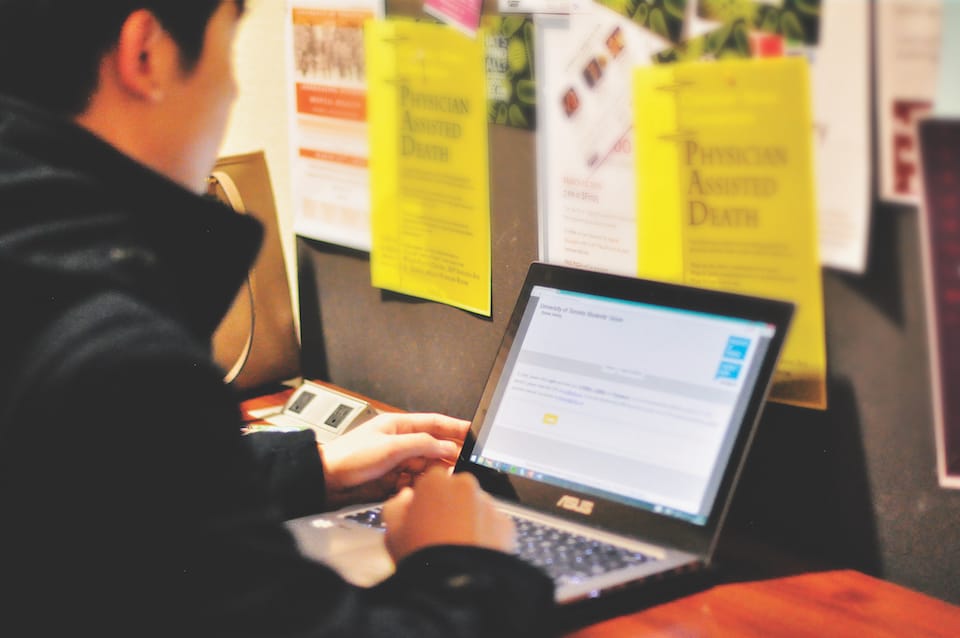Following the March 2016 elections for the University of Toronto Students’ Union (UTSU), the union has released the report from the Chief Returning Officer (CRO), which includes recommendations surrounding polling stations and demerit points.
The number of polling stations at UTSG was reduced from seven to four, and from three to two at UTM for the most recent election.
The CRO also found that no voters requested the use of accessibility software or hardware during the three-day voting period. While the CRO did not have concrete numbers, the report states the liberal estimate that only 1.4 per cent of voters casting ballots utilized polling stations, which translates to only 60–70 people across both UTSG and UTM.
A portion of the report reads: “The CRO understands the value that polling stations add to an election. Not only do they potentially raise awareness of the UTSU Elections and Referenda Committee [ERC], but also, offer access to members who may not feel confident using an online voting system.”
Despite this, the CRO ultimately recommended that the UTSU eliminate polling stations altogether, citing that each day, two poll clerks are stationed for 10.5 hours per polling station.
The CRO also criticized the pay discrepancy between poll clerks working at UTM and UTSG. Across the two campuses there were six polling stations with a total of 331.5 working hours spent at the stations during the Spring Elections. UTSG poll clerks were paid $11.25 an hour, while UTM poll clerks were paid a rate of $13 per hour. The poll clerks were cumulatively paid $4,821 during the elections.
When asked about the possibility of eliminating polling stations in future elections, Ryan Gomes, Vice-President of the Professional Faculties and Chair of the Elections & Referenda Committee, told The Varsity,“The UTSU is going to continue to utilize polling stations for the time being, with physical polling stations being offered on two of the three voting days. There are serious and important accessibility concerns that convinced the ERC to continue utilizing polling stations.” Gomes also stated that he is sure discussion regarding polling stations will arise in the future.
Students for Barrier-Free Access (SBA) expressed concerns over accessibility for the upcoming UTSU Fall by-election. SBA told The Varsity,“The elimination of paper ballots, at this upcoming by-election increases the barriers to access for many students with disabilities. These access barriers could lead to the disenfranchisement of UTSU members and undermine the democratic process.”
There was only one paper ballot cast during the Spring Elections, which turned out to be spoiled. The remaining students who voted at the polling stations used online kiosks set up at the locations.
“The UTSU will not be utilizing paper ballots in the upcoming Fall by-election, although we will still be providing polling stations in addition to online voting,” said Gomes. “We have consulted with SBA before making this decision and are satisfied with this setup.”
While the ERC has deemed paper ballots to be unnecessary, they will still attempt to provide private rooms for voters who need them and computerized voting will be fully accessible to all with appropriate software installed on all computers used for the election.
The CRO recommended that the UTSU entrench demerit points in the union’s Charter for Referenda and suggested that demerit points not be determined each election period, but rather have a set system for each election.
“Reforming the demerit point system would be a long term goal for the ERC. I personally wouldn’t envision this as changing from ad hoc to something else, but I would instead suggest that the limits on some of the offenses could be revised, as well as investigating the addition or removal of offenses,” said Gomes. “We don’t have anything official planned yet but I anticipate the topic will be discussed again during the fall term.”


